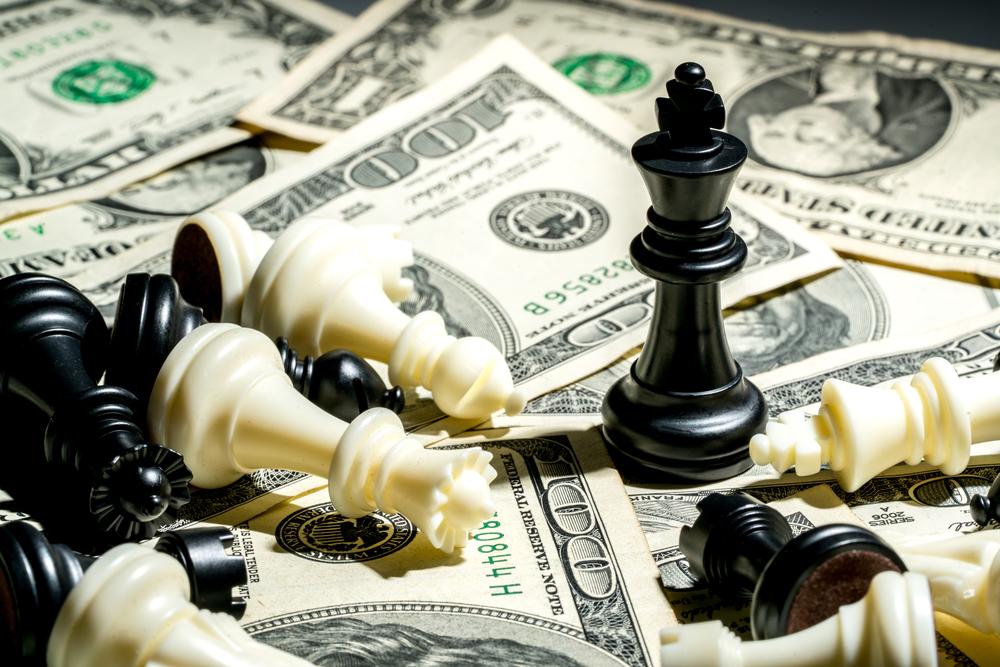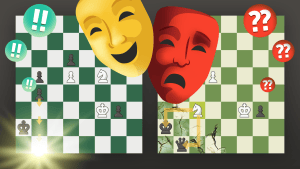
Can Chess Make You Filthy Rich?
Unlike professional soccer or tennis players, chess players cannot brag about their money. Yes, the world champion Magnus Carlsen is very rich and most of the players who've played world championship matches are millionaires, but can they be compared to Cristiano Ronaldo, Lionel Messi or Roger Federer? Each of these stars reportedly has a net worth close to half a billion dollars!
Is all hope lost for us and no chess player ever is going to become filthy rich?
The good news is chess can help you to become very rich and you don't even need to be as strong as Magnus Carlsen. Case in point is James Altucher who is just a national master with a USCF peak rating of 2232. According to some Internet sources his net worth is over $20 million! You might say that he earned his wealth in the world of investing and chess has nothing to do with it. Here is what James Altucher thinks about the role of chess in his life: "Chess got me a girlfriend, it got me into college, it got me into graduate school, it got me my first job, it helped me raise money, it got my company sold, and it opens doors when previously they seemed locked to everyone around me."
Pretty impressive, huh?

Our beloved game apparently develops a set of skills that can be extremely useful in the business world. When international master Norman Weinstein (no connection to Garry Kasparov ![]() ) made tons of money for Bankers Trust in 1990s, the firm decided to hire a bunch of strong chess players to replicate Weinstein's success. One of them was GM David Norwood.
) made tons of money for Bankers Trust in 1990s, the firm decided to hire a bunch of strong chess players to replicate Weinstein's success. One of them was GM David Norwood.
I met David on numerous occasions in the junior competitions. We played in the World Junior Championship in 1987 and also in the international tournament in Oakham in 1988. Both games were drawn. Don't trust the databases that claim that a draw was agreed after just one move:
I don't have the correct moves but in reality it was a long game. Besides, David would never play 1...e5 since he always played 1.g3 or 1...g6 on the very first move. Here is how he beat one of the tournament's favorites:
As you can see, David Norwood was a promising young player, but he abruptly quit chess when he went to work for Bankers Trust. As a result, he retired a multimillionaire at the age of 40! According to some rumors he has bought an island where he lives now with his family.
Joel Lautier was another player who I met frequently at the end of the 1980s and the beginning of the 1990s. As a matter of fact, he was one of the three other players who I tied for first in one of my most memorable tournaments. Here is our game from the super-tournament in Dortmund:
I thought Joel had a very bright chess future. The sheer fact that he played Kasparov over a dozen times and the score is even tells you the story! Here is one of their games:
These days Joel Lautier is a CEO of RGG Capital, a merger and acquisition firm located in Moscow.
Since I am talking about my junior competitions, I should mention the U.S. grandmaster Patrick Wolff. We played in the above-mentioned World Junior Championship is 1987.
At some point Wolff disappeared from the chess tournaments. The reason of his disappearance can be found in Wikipedia: "Wolff was previously a managing director at San Francisco hedge fund Clarium, which is a $3B global macro hedge fund. He left Clarium to launch Grandmaster Capital Management, a hedge fund that received seed capital from Peter Thiel, the founder of Clarium and a strong chess player himself." This Wikipedia entry brings Peter Thiel into our discussion. He is the richest chess player I ever played!
I am pretty sure that the last couple of moves provided in the database are wrong, but unfortunately I have lost my own score sheet, so I cannot fix the error.
Peter Thiel's is a national master who had a highest USCF rating of 2342, so he cannot earn much by playing chess. From the other side, as a co-founder of PayPal, he has a net worth of $2.6 billion!
As you can see, chess players can beat soccer and tennis stars in the money game!

